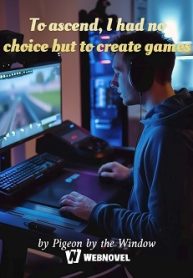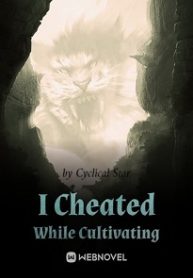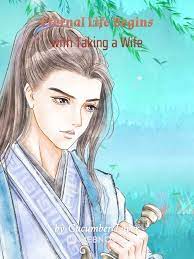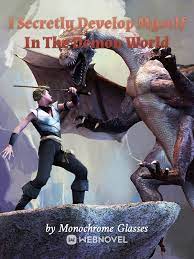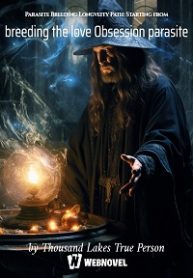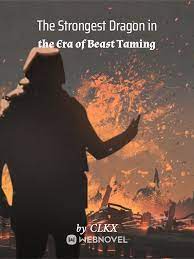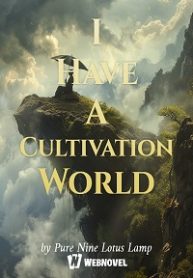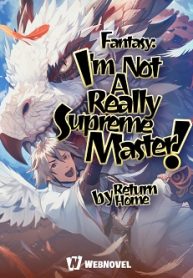Peculiar Soul - Chapter 13: Jamais Vu
Chapter 13: Jamais Vu
Dr. Josef LeMegne
Administrative Hall #84
Braun Island.
Sir –
By receipt of this letter you stand informed that the Assembly as convened on Waning 35, 673 has revoked your right of travel to the mainland until further notice. While this body recognizes that your efforts in service of Ardalt have been exemplary, your unaccompanied presence in Calmharbor has been determined as a risk to the autonomy and authority of the Ardan government.
In the event that Chairman Dreschner is once more available to serve as your escort, this body may reëvaluate your access to the mainland. Until that time, please make any requests for travel via letter addressed to the Office of the Assembly Parliamentarian. Absent this body’s written authorization in response to such a request, you will be restricted from making landfall by means appropriate to the circumstance.
This body recognizes that your confinement will present a hardship, and in recognition of your contributions to the national cause an additional appropriation shall be made available to you at the earliest convenience of the Exchequer. Should any further need for resources or personnel arise, your request will be given serious consideration.
In service,
Ludolf Schlieben, Assembly Parliamentarian
Waning 36, 673.
Michael sat on a stump and looked out over the orchard. Flowers flashed pink and white from every branch, and the air lay thick and rich with their aroma. He inhaled it and smiled, feeling the sun on his face.
“You seem happy,” Jeorg said, easing himself down to sit beside Michael.
Michael shifted to give the old man some room and smiled. “You’ve been teaching me to be content where I am,” he said. “If you’re still surprised after all this time, I think I should consider being offended.”
“A fair reply,” Jeorg chuckled, turning his head to survey the clearing. “Nice breeze. Not too hot. A good day to practice being content.” He took a deep breath of the air and smiled appreciatively, stretching his arms out under the summer sun. “A good day to practice being, in general. Fortunate for you.”
Something in Jeorg’s voice sent a little shiver of apprehension crawling over Michael’s skin. “Why do you say that?” he asked. The air had turned thick and humid around them, and he felt his shirt sticking damply to his skin.
“The practice of being is the practice of exercising one’s self,” Jeorg said. “Of knowing it. Every aspect of it, the good and bad, standing inviolate against all circumstances.” His smile died, slowly. “Can you remember why that would be useful?”
A breeze blew, and Michael felt the cloth of his shirt turn cold. Memories intruded into the garden, hard-edged and unpleasant: of the confrontation at Leon’s, of traveling to Maiburg and boarding the ship there. Of Jeorg dropping bloody to the deck. Of Spark kneeling over his corpse.
“You aren’t Jeorg,” Michael said. “He – are you some trick of Spark’s?”
Jeorg looked at him incredulously, then shook his head with an amused grin. “Don’t overestimate your enemies,” he said. “More dangerous than underestimating them. Spark has a powerful soul, yes – but so do you.” He gestured out over the orchard, the sweep of his hand taking in the branches laden with fruit, the vines hanging heavily from their trellises. “Still nascent, perhaps. I don’t think the old man knew, even at the end. All he could see was potential, and all he could give was trust. The belief that your path was – what was his phrase? Rare and dangerous? Worthy of a little faith, at least.”
Michael stood from the stump and backed up, keeping a wary eye on the thing with Jeorg’s face. “I wouldn’t expect some device of Spark’s to admit to it,” he said. The wind gusted again, carrying the sweet scent of rotting fruit to his nose. The leaves shimmered around him in golden hues. “Tell me who you are. Be plain about it.”
The old man chuckled and stood to face him. “Ah, I shouldn’t laugh,” he said. “But you know it’s a bit funny too, or I wouldn’t. This is your garden, Michael.” He stepped closer. “Your mind. Your body. Your soul. There is only one person here.”
“I don’t feel particularly alone,” Michael said, stepping back to keep his distance. The air was freezing, the wind blowing through bare branches overhead. He met Jeorg’s eyes and found them empty save for a glimmer of mirror-light.
A grin spread across the old man’s face. “You don’t want to be,” he said. “You want Jeorg to save you, to make everything right again. But that can’t happen. He’s dead, Michael. You know what he would tell you about self-delusion.”
Shivers wracked Michael’s body as snowflakes began to filter down through the bare orchard. “Shut up,” he muttered. “You’re not Jeorg.”
“If you believed that, I wouldn’t be,” Jeorg said. He gestured, and a thick growth of roots sprang up from beneath the soil, cracking through the frost to encase Michael’s foot. It constricted painfully tight even through the numbing cold. Michael clawed at it for a moment before looking up to find that Jeorg’s apparition had vanished. The cold crept inward from his limbs; he had stopped shivering.
A warmth lit in his chest, smooth and seductive against the cold. He sagged downward as he embraced it. It was calming, quiet. It spoke of endings. It spoke of the void.

Panic flared through him as he wrenched his eyes open, sitting up amid sweat-soaked blankets. He was in a small ship’s cabin, dimly lit with a few utilitarian chests shoved into the corner. There was little else beside a table and a chair, and a man sitting in that chair. Spark. Michael stared at him wide-eyed for a second, watching a smile creep across his thin lips.
“You’re back with us,” Spark said, scooting his chair around to face Michael more directly. “You’ve been asleep for hours, I didn’t think you’d wake before we got back home. How are you feeling?”
Michael didn’t answer, sitting up from the bed and sweeping the blankets away. He was unbound. For a moment he looked down, then he slowly raised his eyes to the man who had killed Jeorg. He stood.
“Oh, dear,” Spark said. “Angry, and I can’t say I blame you.” He leaned back in his chair, his brows knitting together. “I’ve made a mess of this. If I had planned a bit better we could have all come home. I didn’t even get to-” He broke off, squeezing his hands into fists for a moment before letting his breath out in a rush. He looked up at Michael once more, showing wet, reddened eyes.
“I’m rambling with you in such a state,” Spark said. “You should rest, go on and sit. Are you feeling hungry? We’ve only got ship’s rations on board but I always make sure to bring along some marmalade for the biscuits.”
Michael stared at him. He didn’t know what he had expected from Spark, but it wasn’t this. Flighty, distracted, constantly on the verge of tears. It reminded him of Helene after his mother had died, charging down avenues of small talk with no aim except to fill a dreaded silence – except that the comparison was ridiculous, Helene had borne no responsibility for her death. His gaze hardened, and he clenched his fist-
“I’ve decided that I shall have marmalade and biscuits, and you may have some if you feel so inclined,” Spark announced, standing from his chair. Michael frowned; he found that he was once again sitting on the bed. Spark opened the door to the cabin briefly and spoke a few quiet words to someone standing outside. Seconds later, he shut it once more and returned to his chair.
“Should be only a moment,” Spark said cheerily. “Tea, too. Perhaps we can talk while we wait.”
“I don’t have anything to say to you,” Michael said, rising to his feet once more. Spark looked thin from this vantage, frail. One good punch would topple him from his chair.
Spark’s eyes widened. “Oh, oh!” he exclaimed. “You’re contemplating violence! I remember, I used to do that. Believe it or not, I used to be a very bad person. Jeorg fixed that. Go on, sit down, I have so many stories to share with you.”
Michael moved to close the distance between them – but faltered, because he was sitting on the bed once more. He stood.
“Sit, sit!” Spark said, waving a hand in his direction. “The least I can do is make sure you get your rest after all you’ve been through. Now, what was I saying?” He frowned, stroking his chin, then perked up with an excited smile. “Ah yes, stories! Would you like to hear how Jeorg and I first met?”
Bewildered, Michael stared down. He was sitting on the bed. Spark was watching him expectantly, looking utterly unconcerned that Michael might mean him harm. With slow, creeping horror, Michael realized that Spark’s confidence might be justified. Cold panic raced through his veins. He tamped it down and strove to focus. Jeorg had spoken of Spark’s power in terms of paths, of altering by force what could not happen naturally.
So Michael drew his own path. He envisioned the act of standing, of taking a step forward with his left leg, raising his right arm. Planting the foot, twisting his body, directing all of his energy into the punch. The contractions of his muscles and flexion of his joints played out in his head, front to back, several times until he had it all precisely visualized.
He exploded upward from the bed, hurling himself forward at Spark – but the other man rose just as he did, standing to face him with a smile. Michael twisted to adjust his aim; he wasn’t quick enough. Spark brought his hand up and gently laid his fingers on Michael’s cheek.
“I was like you, once,” Spark said quietly. His voice reverberated through Michael’s bones, leaving a blushing warmth behind it. “Single-minded. Charging straight for whatever I wanted. If something caught my eye I would take it. Jeorg showed me how wrong that was.”
Michael was frozen, unable to move. The light in Spark’s eyes flickered in a subtle pattern that captivated his attention entirely.
“He taught me to draw the path between what was and what should be,” Spark said, smiling wistfully. “It took a long time before I understood. People have so many little obstructions to account for, after all. So many reasons not to help with my research. You don’t want to help because I killed Jeorg.” His smile faltered. “It’s a good reason. It presents a dilemma, however.”
Spark took another step, his face drawing so close that his eyes filled the world. “I need you for my research,” he said. “But your path is important. Your natural state. I mustn’t introduce variables by changing things. I need to understand you in full, to understand this wonderful soul of yours. Michael Baumgart as he truly is.” The light in his eyes glinted, the flickering growing faster. “But science is difficult. Sometimes observation necessitates a change no matter how careful one tries to be. The key is finding the minimum. The absolute smallest change that makes the paths line up.”
Michael barely heard Spark’s voice anymore. It was as if the words were arriving fully-formed in his mind, each one ringing a pure and clear note. He felt the sensation of floating, of bliss – and then it passed. He looked up and found himself sitting on a bed in a small ship’s cabin. Spark was just settling back down in his chair with a teacup and a plate of biscuits, each smeared with a generous dollop of orange marmalade. He took a bite of one and chewed with a delighted expression.
“Ah,” Spark said. “Sometimes a little bit of sweet is all one needs to brighten up something dreary.” He extended the plate towards Michael. “Go on, have a biscuit.”
For a moment Michael’s mind rebelled against the idea. He was furious with Spark – why? He stared at the glistening marmalade for a second and tried to remember. His mind wandered for a moment until something deliciously sweet and tart washed over his tongue. Surprised, he looked down to find a biscuit in his hand, a bite missing from the edge.
“That’s better,” Spark said cheerfully. “Aren’t they delicious? Some people have it in their head that they don’t like the taste of marmalade, but they all seem to come around eventually.” He took another biscuit, then set the plate aside. “Now, have I ever told you about my dear friend Jeorg?”
Michael frowned. The name carried an irritating feeling of familiarity with it, as if he had just heard it somewhere else. After a moment, however, he shook his head.
“No,” he said. “Who is he?”

Braun Island loomed in the haze, its peaks a shady green overhanging a low, flat spit of land that rambled away to the east. Their boat made for the protected curve of the northeast shore, and where the mountains tapered down towards the sand Michael could see a tightly-spaced collection of buildings standing in a meadow. The forest grew up around it in a sharp demarcation, as if some giant hand had scooped up the forest and switched it for city blocks. Fields lay around the perimeter. As they drew closer Michael could see people walking through them, hauling large baskets as they returned.
An odd pain throbbed in his chest at the sight of it. There was a wistful longing attached to the idea of harvest-time, but the thread of that thought slipped from him when he struggled to pursue it. Michael frowned. It seemed like that had been happening a lot lately. Ever since – well, there was the trouble. The past few months were a blur in his mind. Likely tied to his soul, since Spark kept mentioning it.
Michael sighed. At least it seemed like he was getting help for whatever ailment had afflicted him, since this appeared to be an Institute facility of one sort or another.
He stood at the railing while the boat pulled up to the dock, the blurred darkness at the rear deck dropping to reveal the ship’s Ember, sweaty and breathing hard from his exertions. Michael winced and rubbed at his chest a new stab of pain flitted across his ribs. He thought of his father – then frowned, unable to quite remember why. Something about the Ember-
“Michael!” Spark called, waving from amidships. “Over here, no time to waste!” The thin old man was practically bouncing in place, eyes sparkling over a radiant grin. “Come, come, I’ll give you the tour on our way to the lab.”
There was a confused rush of activity as they disembarked. Men strained at crates or coiled rope in careful piles. The chaos deigned to part around Spark, however. Michael walked in the clear path that manifested in his wake, dogging his footsteps until they had moved away from the port.
When they escaped the crowd Michael got a better look at the buildings that made up the complex’s core. Largest by far was a squarish, U-shaped hall that stretched up three storeys. It would have fit nicely in Calmharbor’s administrative district were it made of the mainland’s ubiquitous brown brick, but instead it stretched up in the rich, mellow shades of hardwood alternating with expanses of glass.
The other buildings were variously less impressive. Most were built in the amalgamated, flowing style that Michael had learned to associate with artifex stonework, while others were crude wood. Near the fields there were several long, low half-cylinder buildings that appeared to be canvas stretched over a frame.
It felt like a city built with more enthusiasm than skill, invented from pictures and descriptions of real cities back in Ardalt.
“Isn’t it something?” Spark asked, spinning around to look at Michael while walking backward. “They kept offering to ship me a load of bricks, but what use are bricks? My budget is to be spent on equipment, on research, on people. Bricks can’t advance the sum total of human knowledge, but humans can advance beyond the need for bricks.” He grinned. “I never found finance to be as much of a conundrum as people make it out to be.”
Michael nodded absently, rubbing at the persistent pain in his chest as Spark pointed to this or that building and rambled for a few moments about its purpose. Most appeared to be either storage or lodging. After blocks of mismatched buildings and enthusiastic narration they arrived at the main hall. Spark’s gleeful manner narrowed to one of focus as he led the way through its twisting corridors.
Their destination was a small examination room with a single bed. A light burned in the ceiling; the island had some source of electricity, it seemed, although the lack of wiring led Michael to suspect that it might be limited to the main building. At a gesture from Spark, he laid down upon the bed.
“Now for some proper readings,” Spark muttered, shifting things around on a table in the corner. “Can’t trust any measurements until you’ve made them twice yourself. All right, here we are, hold still…”
Spark’s face appeared in Michael’s view as he walked close to tape a lead to each side of his head. “There. And now we confirm, we see your soul is…”
Spark froze. His eyes fixed on the box in his hand. “Life,” he croaked. “No, it’s not possible. They said they tested you three times. That there was no alignment. They sent me the files.”
The box clattered to the floor as Spark took a step back, the leads ripping from Michael’s head. He scowled and sat up, rubbing the patches of raw skin. Spark was staring at the wall of the room, pale-faced, his jaw slack.
“Is something wrong?” Michael asked. “I thought I was supposed to be Life. When I went to the Institute, Sibyl said-” He broke off as his thoughts jarred to a halt again, grasping at interrupted threads. Images floated into his vision, sharp and clear in a way memory seldom managed; four figures stood at a boat dock, waiting for a fifth. His reverie shattered as Spark’s hands gripped his upper arms to shake him violently.
“You were supposed to be special,” he seethed, his eyes blazing with anger. “I spent months, thousands of crowns, I killed Jeorg.” His hands crushed down on Michael’s arm with surprising strength for such a thin man. Michael began to taste panic in the back of his throat. He had seen enough rage to know when someone was in the mindless grip of it. Spark was coming undone. His drab eyes began to flicker with their light – and then, like a doused candle, it ended. Spark stepped back with a sickly look on his face.
“Ah, ah,” he muttered, rubbing a hand wearily across his eyes. “Foolishness. I’ve killed the man, and now I forget his lessons. Fitting that even his death is instructive.” Spark looked up at Michael, and his eyes were dull as stone. “You were always an innocent in this. More so now than ever. I will not – compound my error by continuing to act in the grip of emotion.”
He turned and paced toward the wall, standing with his back to Michael. “Leave me. You may sleep at the control barracks, ask anyone for directions once you’re outside.” He clasped his hands behind his back. His fingers whitened from the tension of his grip. “I will summon you when I have decided on a course of action.”
Spark said nothing more. Michael paused for a moment to look uncertainly between Spark and the door, then let his oldest instincts guide his feet fast and away. It took him some time to find his way out of the building – the interior was haphazard at best and his mind was still racing from the assault.
Eventually he emerged back into the jumbled city. It was still daytime, but the high mountains to the west had plunged the streets into a cool shadow. The cold was enough to make him shiver, and his jacket was in – somewhere. Michael scowled. The disheveled state of his mind was not helping his composure. Exposure and fatigue would do worse; he needed to find the building Spark had mentioned before nightfall or risk sleeping rough and hungry.
He began to walk. There were strangely few people in this part of the town, for all that it was built to resemble its administrative center. It was a short walk to the outskirts, though, and there he found a trio of men carrying baskets of grain. They wore loose white clothing with their hair and beards shaved, and were so quiet as they walked that Michael felt momentarily awkward for interrupting.
“Ah, hello,” he said. “Can you tell me where the control barracks are?”
Two of the men did not react in any way, but the third pivoted to face him and set down his load. “Yes I can!” he said, smiling broadly. It was not a flattering expression on him; his teeth were brown with decay. The knife-edged memories lurking within him rustled once more with a different rotten smile and staring, vacant eyes. He saw the man’s face and the face from his memories overlaid with his own, all three staring and grinning with the delight of the mad – then it passed, and there was only the man.
Michael cleared his throat. “Where are they?” he asked. “Can you show me?”
The man nodded vigorously and picked up his basket. Michael could see him straining against it and stepped forward to offer his help, but the man pivoted protectively and turned his back to Michael.
“I have it!” he said, a high note in his voice that had not been there before. “I have it! I’m strong enough to carry. Very strong. I can do all my jobs. I can show you the control barracks.” The man adjusted his grip on the basket and set off down the road.
Michael followed bemusedly. His guide was not fast under his burden. It was twilight in truth by the time they reached a long, low building shaped from artificed stone. A hand-lettered sign over the door bore the word “CONTROL” in red paint.
The man stopped and looked at him. “This is the control barracks,” he said, breathing heavily. “Like you asked.” He shifted his grip on the basket once more and began to trudge back the way they had come.
“Thank you!” Michael called out. The other man showed no reaction. After a few seconds staring after him Michael shook his head and turned towards the barracks. There was no door to the building, just a loose flap of cloth over the entryway. He pushed it aside and walked through.
Another man in white clothing was sweeping the floor inside. He looked up and stared at Michael, but said nothing.
“I was told I should sleep here,” Michael ventured.
The sweeper’s face lit up. “We have beds,” he said, gesturing down the hall. “You can stay with Luc, he has a spare.”
“Any food?” Michael asked hopefully.
The other man’s face fell. “Already had mealtime. No food here – we have beds.”
Michael frowned, but he didn’t want to risk venturing back out into the odd city after dark and becoming lost. One night hungry wouldn’t kill him. He nodded to the man with the broom and went down the hall in the direction he had gestured. None of the rooms had doors or drapes over the entryway – they were just a row of boxes precisely big enough for the two mats laid out on the floor. The mats were occupied by men wearing red clothing in the same style as the others; Michael kept walking until he found the room with only one person sleeping in it.
Fatigue nibbled at him. He had the sense that he was coming off the end of a very long day, even if the details were fuzzy. The constant strain of second-guessing his mind was wearing on him. Some rest would improve his focus, and later perhaps he could find some food. He laid down on the mat and fell asleep.
Michael sat on a stump and looked out over what might have once been an orchard. It was bitterly cold in the clearing, and the few standing trees bore nothing but frost upon their branches. The rest had fallen and splintered. Some lay in a charred heap off to the side. If he looked the right way, he could almost see how they had stood in their rows, orderly and flourishing. Almost.
He stared at the dead trees for a long while, trying to tease some meaning out of their disarray. The wind blew unabated – until, at once, it lessened. The lack of cold felt like a gentle warmth radiating along his side. He turned to look and saw an old man sitting there.
“Hello,” Michael said. “Do you know what happened here?”
“I do,” said the man, taking out his pipe. He lit it, and the flare of warmth flowed from its glowing ember into Michael’s core. “Someone has made a mess.”
“I could see that much,” Michael retorted – then paused, blinking at the easy familiarity that had come unbidden in his response. “I’m sorry, I didn’t mean to be flippant. It’s just sad. Someone put a lot of care into this place, once.”
“Hmm,” the old man replied. “True.” He took a drag on his pipe, then let his hand fall back down to his side. “But nothing lasts forever. Everything comes to an end eventually.”
The words resonated unpleasantly in Michael’s chest. “You’re not wrong,” he said. “Doesn’t mean I have to like it.” He looked out over the broken trunks and withered vines, shivering. “It’s bleak and hopeless. I hate it.”
“You do,” the man chuckled. “Oh, yes, you do.”
Michael turned to peer at him. “I’m sorry, do I know you?”
The man laughed in earnest, setting his pipe down to look at Michael. “Of course you do,” he said. “I am you.”
“That seems unlikely,” Michael replied.
“And yet.” The old man rapped his pipe on the stump. “Our minds see many things, to make sense of a world that stretches beyond their view. An old man and a ruined garden are just the shadows cast by a far-off light. Their form is what it must be, to let you make sense of them.”
Michael scowled. “Then that would be one of us making sense,” he muttered. “Though I’ve been poor at that lately.”
“You’ve suffered a loss,” the man said. “A loss in two parts. It has left a sizable void.”
“And?” Michael asked. “It isn’t as if I don’t feel it. What do you suggest I do?”
The old man’s mouth curved into a toothy smile. “Michael Baumgart,” he scoffed. “Have you forgotten even that? You stood against a far greater emptiness and felt no fear. I know this.” He jabbed a thumb at his chest, then pointed at Michael. “Therefore you know this. You must draw the paths between you as you are now and you as you were.”
Michael looked up and saw the glint of mirrors in the old man’s eyes, the myriad possibilities spiraling away from every moment. “And who was I?” he asked.
The man tilted his head up. “A man who denied the void,” he said, “and said it would claim nothing that he held dear.”

